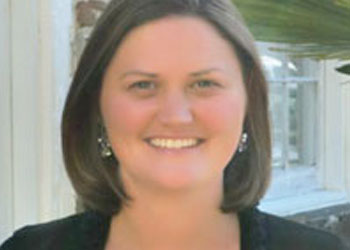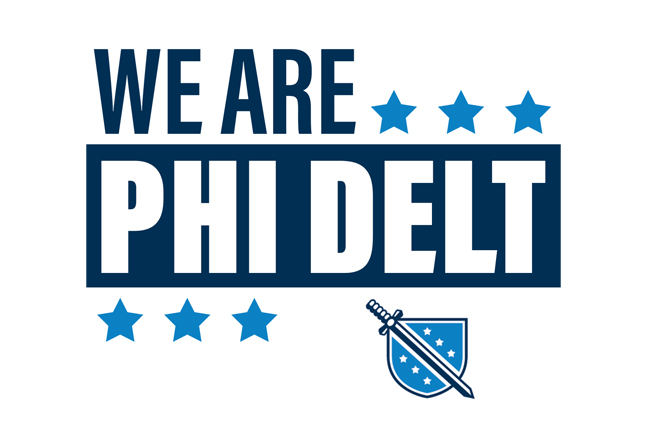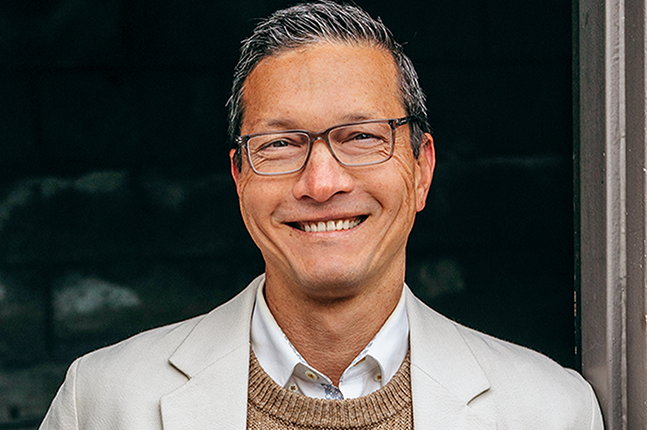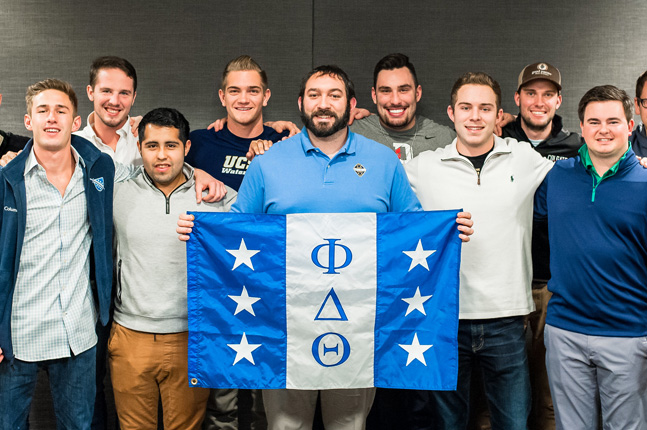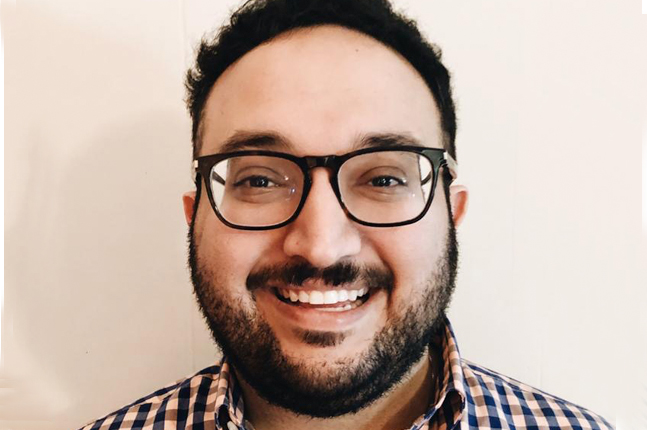By Rachel Westra Marsh
In his book, Seven Habits of Highly Effective People, author Stephen Covey states, “By centering our lives on timeless, unchanging principles, we create a fundamental paradigm of effective living.” I am not sure if Stephen Covey is a fraternity man, but I know for sure that this statement exemplifies exactly what is meant when people in the fraternal world say that you need to live your Ritual. As members of fraternities and sororities we have committed ourselves to organizations that were founded upon timeless, unchanging principles and because of the oath that every one of us took when we became members of our organizations, it is our responsibility to live those values all the time, every day.
Before I move forward with sharing some specific ideas of what living your Ritual looks like, let’s first make sure that we are on the same page about the definition of Ritual. I am sure, for the majority of you who are reading this blog, the first thing that comes to your mind when you hear ‘Ritual’ is some sort of ceremony from your chapter – maybe it’s your formal chapter meeting or maybe it’s your initiation. You are probably also thinking, our Ritual is secret, so how am I supposed to live that every day? Well I am not asking you to put on your robe, sing your songs, or re-enact your ceremonies on a daily basis. What I am asking you to do is to think about the meaning of your organization and what those ceremonies teach you about what it means to be the greatest version of yourself. Think about the words you recited in your oath when you committed yourself to your fraternity for the rest of your life. Think about the three Cardinal Principles of Phi Delta Theta: Friendship, Sound Learning, and Rectitude. Speaker Mari Ann Callais defines it best, Ritual = Values = You!
So now that you understand that living your Ritual means living your organization’s values that you committed to, let’s reflect on what that looks like. My good friend and colleague Scott and I have presented several times to students and professionals about this idea of living your Ritual and what it looks like. We have boiled this idea down to four key categories: knowledge, education, execution, and accountability.
Knowledge. Our Ritual is the one thing that makes our fraternal organizations different from any other organizations on campus and the values and lessons that our own Rituals teach us make our own fraternity or sorority unique from others. It is important for chapters to recognize the importance of learning about your Ritual and making the Ritual readily accessible to all of the members. Members need to embrace the mentality of learning about their Ritual not because they have to but because they want to. Again, I am not referring to just memorizing the lines, the oath, or learning the handshake. I am talking about facilitating discussions and reflections around what that Ritual teaches us about how we live. It is each of our individual responsibilities to make sure that we really know and understand what our Ritual is teaching us. If the fancy words used in your ceremonies confuse you, take some time to dissect that Ritual and interpret what it means today. Re-writing your oath into your own words will help you to gain a deeper perspective and appreciation for the commitment you have made. The very basics of being able to live your Ritual starts with your knowledge and understanding of what it is you are supposed to be living. So if you aren’t familiar with what your Ritual is telling you about your organization, the first step is to take some time to really read it and reflect on it. If you need help comprehending what your Ritual is telling you, your advisors and International staff members are a great resource to reach out to for clarification and understanding.
Education. Once you gain the knowledge of your Ritual, the next step is to make sure that your chapter is teaching the values of your Ritual to all of your members. Chapters who struggle in this category are unable to teach the values and principles of their organization, lack Ritual training, and have little to no follow-up after Ritual ceremonies are conducted. Many organizations have a post-initiation education session with their new members, but what are you doing to continue to educate all of your members about your Ritual? Why not spend 5 minutes at each chapter meeting picking a different part of your Ritual to review and evaluate as a chapter how individual members and the chapter as a whole is actually living that part of the Ritual? Take a separate line of your oath each week and as a chapter discuss it’s meaning and specific examples of how it can be lived. Remember, it’s not just up to our new initiates to understand this, but every member, so let’s be sure we are educating all of our members on an ongoing basis. Chapters who focus on education consistently train, educate, and discuss Ritual in various settings. Members feel comfortable discussing Ritual and a good deal of time is spent reflecting on what Ritual means to the chapter.
Execution. Once you have gained the knowledge and educated your chapter about your Ritual, it’s up to you and all of your members to live and/or execute the values of your Ritual. You have to “walk the walk” and put values into action. The key thing to understand about execution is that you cannot pick and choose when you want to live those values, they must become such a part of your daily routine that you don’t even have to think twice about them. They need to be just as evident on a Friday or Saturday night as they are on a Tuesday afternoon when you are in class. Think back to those three Cardinal Principles and how they can each be incorporated into your daily actions. Demonstrate your friendship by being there for your brothers when they need your help, and putting them before yourself. Dedicate yourself to sound learning, get out of bed and go to class, participate when you are there, and go up and speak to your professor afterwards. Sound learning isn’t just about getting good grades but it is staying open to new experiences and opportunities that will help you to continue to grow into that greater version of yourself, and that doesn’t end when you leave college. When making decisions about how to spend your time and money, both as an individual and as a chapter, let your moral rectitude guide those decisions. Execution is where the rubber meets the road; our Rituals are not just pretty words on papers, but a call to action and a guide for how we should be living our lives every day.
Accountability. Perhaps one of the most important aspects of living our Ritual, but often the most neglected, is accountability. I get so frustrated when I meet with chapter presidents and they tell me that there is nothing they can do about members in their chapter who are not paying dues, getting good grades, or whose behavior is destructive to the organization. “I am not their dad,” they say. Correct, they are not their dads, but they are the president of the organization and each of their members took an oath to uphold the values of their organization. It is up to the leaders, and really all members, to make sure that we are all holding each other accountable for doing what we say we will do when we join our organization. Recognizing members who are living out your values on a regular basis can reinforce accountability among your members. Each week as you review a line of your oath and discuss examples of what it looks like in practice, take time to recognize members who have demonstrated those values through their actions. This will help positively reinforce the idea of living your Ritual and help other members see how they can do that in their own lives. Additionally, when you see members behaving in ways that are inconsistent your values, you must call them out. Have a conversation; remind them of the commitment they made, help them understand the negative impact it is having on the chapter. So often we get caught up in the rules and policies and only holding members accountable for those. Don’t get me wrong, those are important, but remember: our Ritual is the blueprint for the success of our chapter and its members, so let’s start incorporating that into standards meetings and conversations.
At the end of the day it’s important to remember that we made a lifetime commitment to living our Ritual when we were initiated and that doesn’t end when we graduate from college. As a Phi Delt, friendship, sound learning, and rectitude should always be the principles that serve as your paradigm for effective living. Our Ritual is not just words on paper to be memorized or recited once or twice a year. If we are really members of our organization we have to put those timeless and unchanging principles at the center of our life every day.
One of my favorite quotes is “when all is said and done, did you say more or do more?” The future of your fraternity and our Inter-fraternal community depends on your ability and willingness to DO more. It is time for us to stop just saying we stand for these values and actually demonstrating them through our actions every day. Let’s start living our Ritual!
Rachel Westra Marsh currently serves as the Director of Greek Life at the College of Charleston, previous to that she served their community as the Assistant Director of Greek Life for two years. She is originally from Virginia, where she completed her undergraduate studies at Virginia Tech. She spent two years working as a National Consultant for Chi Omega Fraternity before she returned to school to pursue a Master’s Degree in Higher Education and Student Affairs at the University of South Carolina. While pursuing her master’s degree, she served as the graduate assistant for Greek Life as well as Assistant to the Associate Vice President for Student Affairs. Rachel has experience working with NASPA’s Knowledge Community for Sorority/Fraternity Affairs and has given presentations and facilitated at a number of fraternity and sorority conferences. She also serves as a volunteer for Alpha Chi Omega, Beta Theta Pi, Chi Omega, and Sigma Alpha Epsilon.

